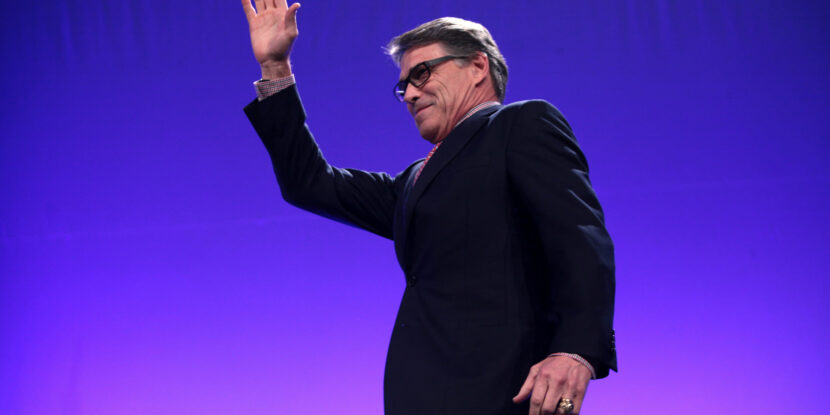
And so there are 16, as Rick Perry effectively ends his campaign (they always say the campaign is “suspended,” in case they can get FEC matching funds down the road). The JV debate will be even lonelier with Carly going to the show and Rick to pasture (Gilmore, Graham, Jindal, Pataki, and Santorum remain).
The demise of Perry is not terribly surprising, but it is nonetheless difficult to fully explain. Hindsight, in politics as well as sports, is not 20-20; there are too many intangibles in play. Perry on paper should have been more of a contender. He is a likable man; he was experienced in politics; he stood strongly for the rule of law on border issues; he challenged Obama rather than embraced him (Christie). But he wasn’t what Republican voters are looking for this year.
In explaining Perry’s demise, there are at least five contributing factors:
- His 2012 performance — which included a disastrous debate performance attributed to medication — hung on him like the proverbial albatross. He couldn’t shake the conclusion he wasn’t the sharpest tool in the shed.
- Nor was he able to overcome the collective legacy of 2012. Note that none of the alumni of that debacle — Huckabee, Perry, Santorum, and Paul (whose father was the candidate, but Rand was by Ron’s side throughout Iowa and New Hampshire in one of the nastier candidacies in memory) — are doing well, even though this list includes two previous winners of the Iowa caucuses. As though eager to forget a really bad movie, Republicans want not to be reminded of 2012.
- Perry suffers from “governoritis,” in which the patient tries in vain to sell voters on the idea that he’ll do for the nation the great things he did for his state. Nobody bought that Perry was responsible for Texas’ economic success, let alone that he could do the same nationally. In fact, none of the former or current governor candidates is doing well (Kasich aside, perhaps).
- Horatio Alger isn’t selling this year. Perry’s personal narrative of humble beginnings didn’t impress the voters and wasn’t that distinctive from the stories told by Marco Rubio, Chris Christie, John Kasich, Scott Walker, etc…
- This is not the year to be running from Texas. Just as Jeb is struggling under the Bush brand, Perry struggled with voter reluctance to elect another president from Texas. Note to Ted Cruz: I know you’re not really from Texas, but I’d lose the boots.
A friend of mine says there are two kind of candidates, winners and losers, and that these qualities are observable long before the voting begins. Some candidates simply come across as winners. It’s the quality of being confident without being smug, a leader who inspires, accomplished. But it is more than these things. It’s an ineffable quality; it’s a condition which cannot be fully explained. What is annoying about my friend’s observation is a) that he’s right, and b) that he’s very accomplished in field other than politics, and so has no business coming up with such insights.
Not to kick a good man when he’s down, but Rick Perry simply is not, shall we say, a winner. Hillary Clinton is a loser, and there is nothing she can do to change that. Saying you’re a winner does not make you one. It remains to be seen how much of a winner Donald Trump really is.
Steve Wagner is president of QEV Analytics, a public opinion research firm, and a senior fellow at the American Principles Project.


